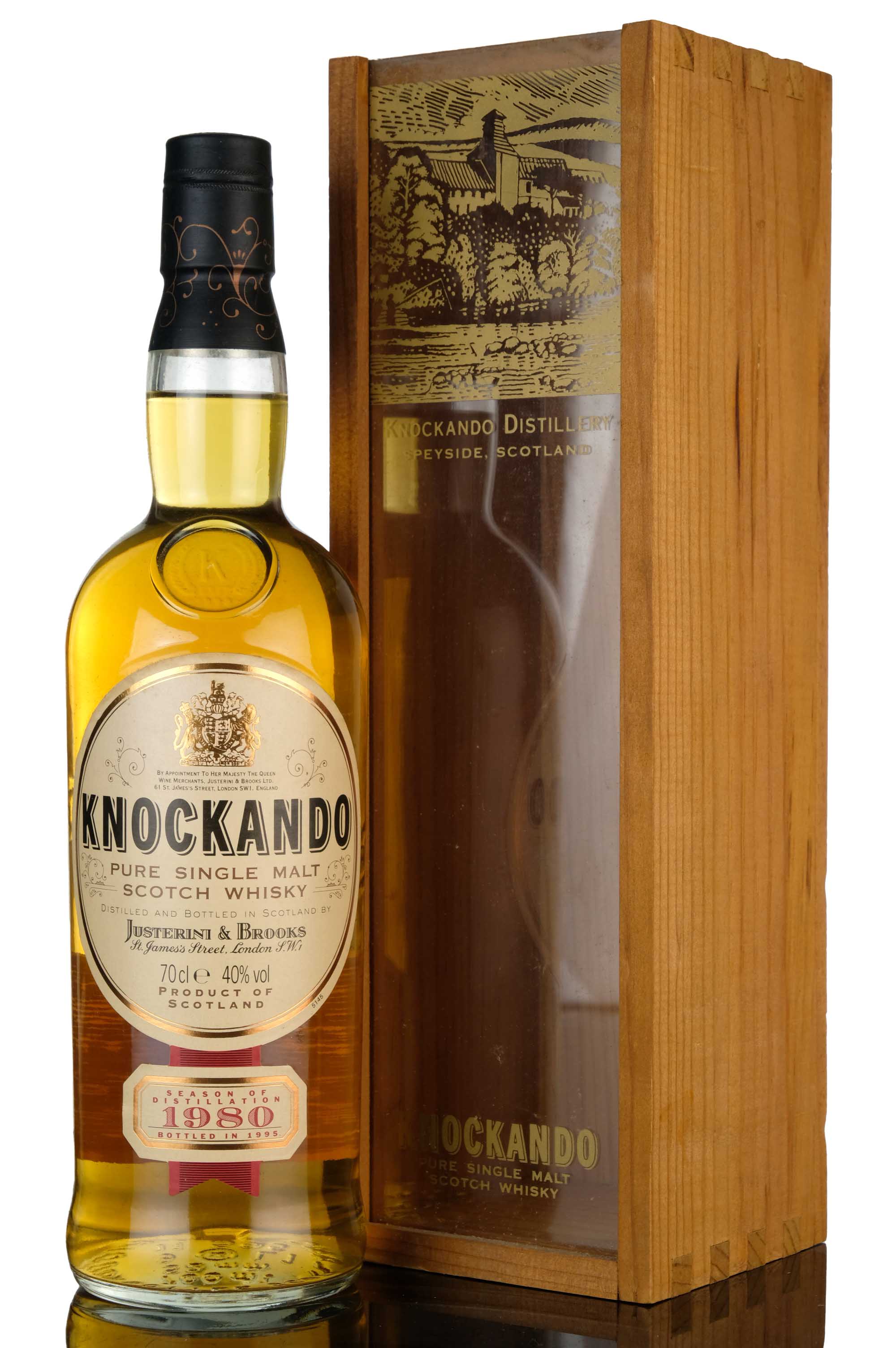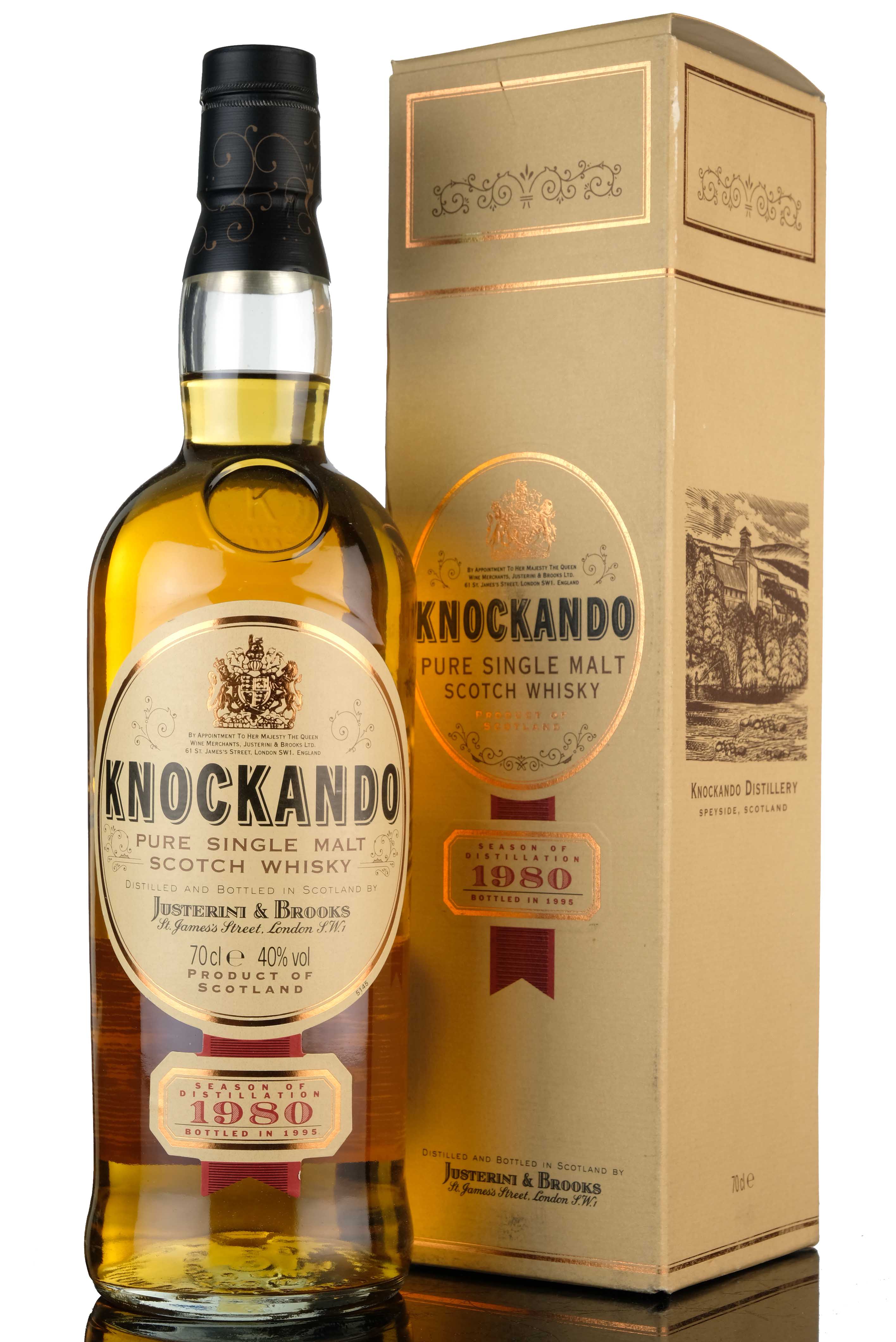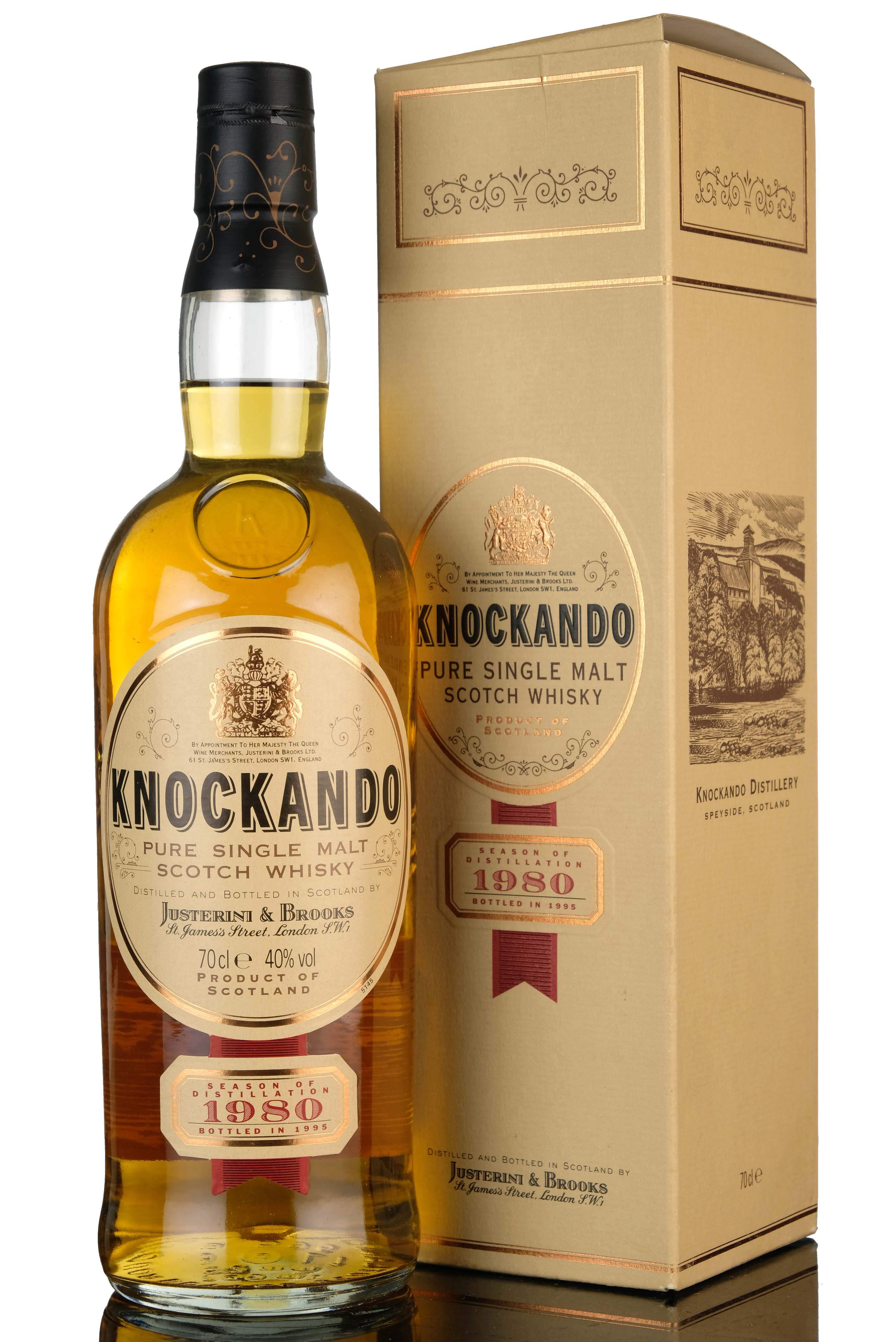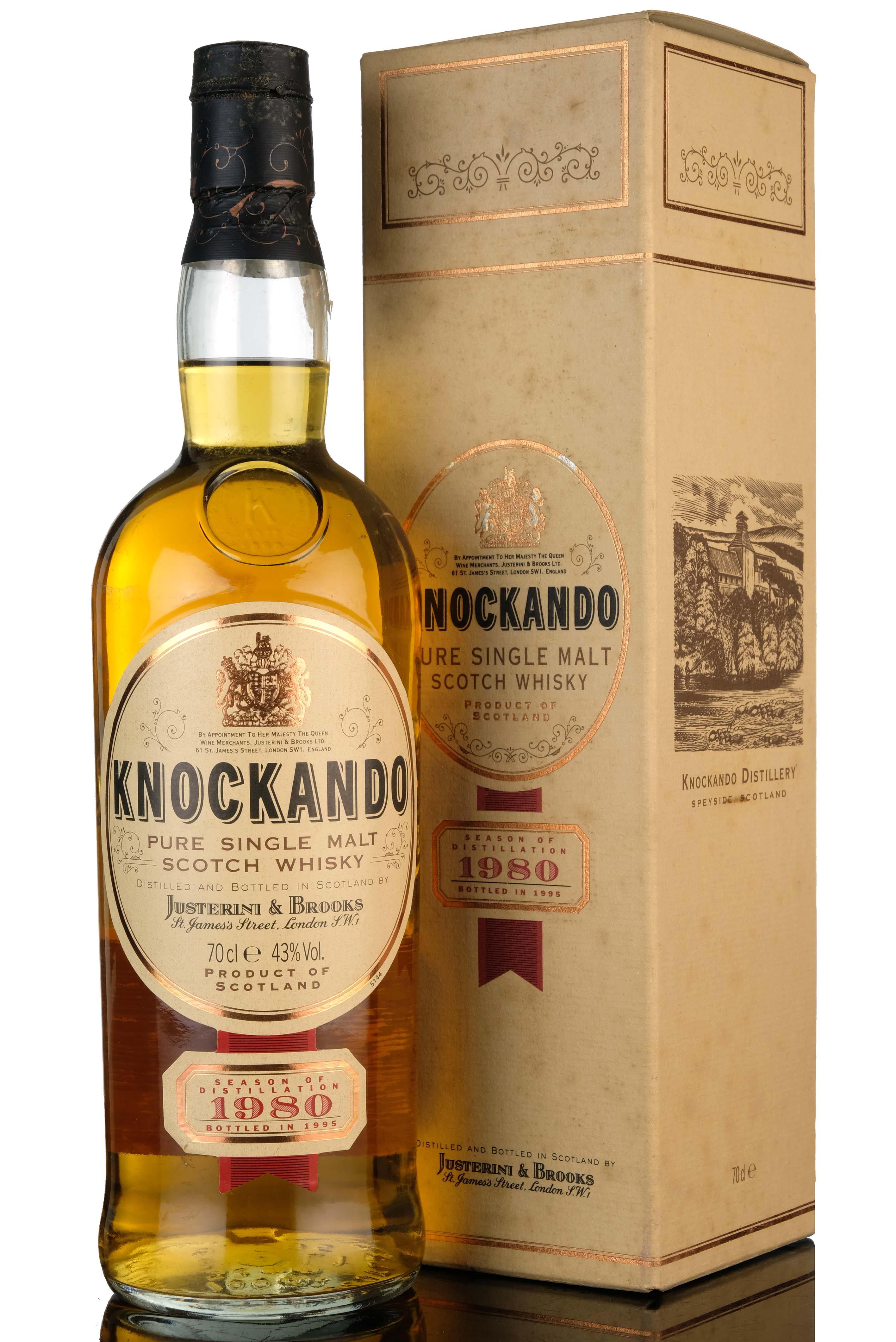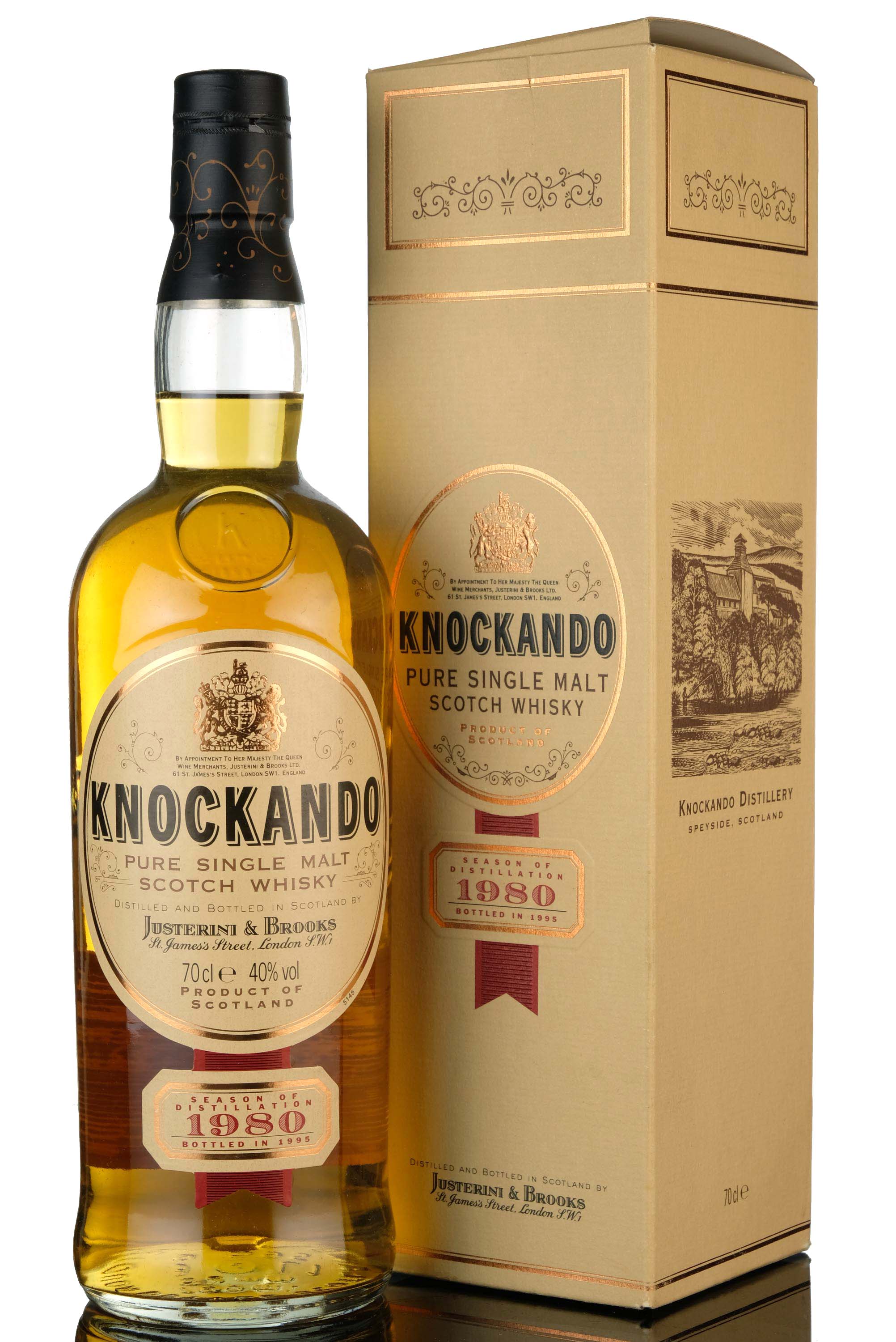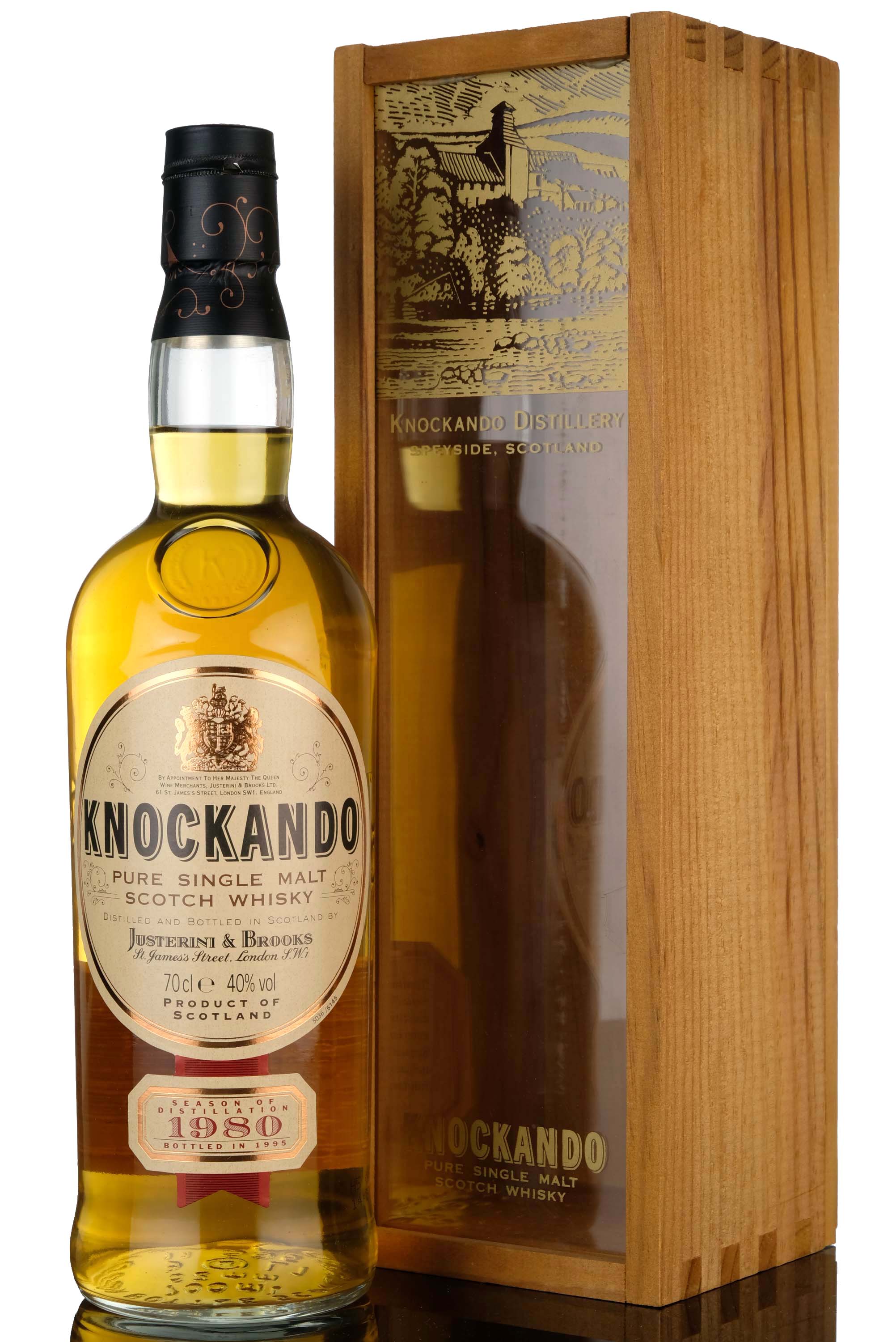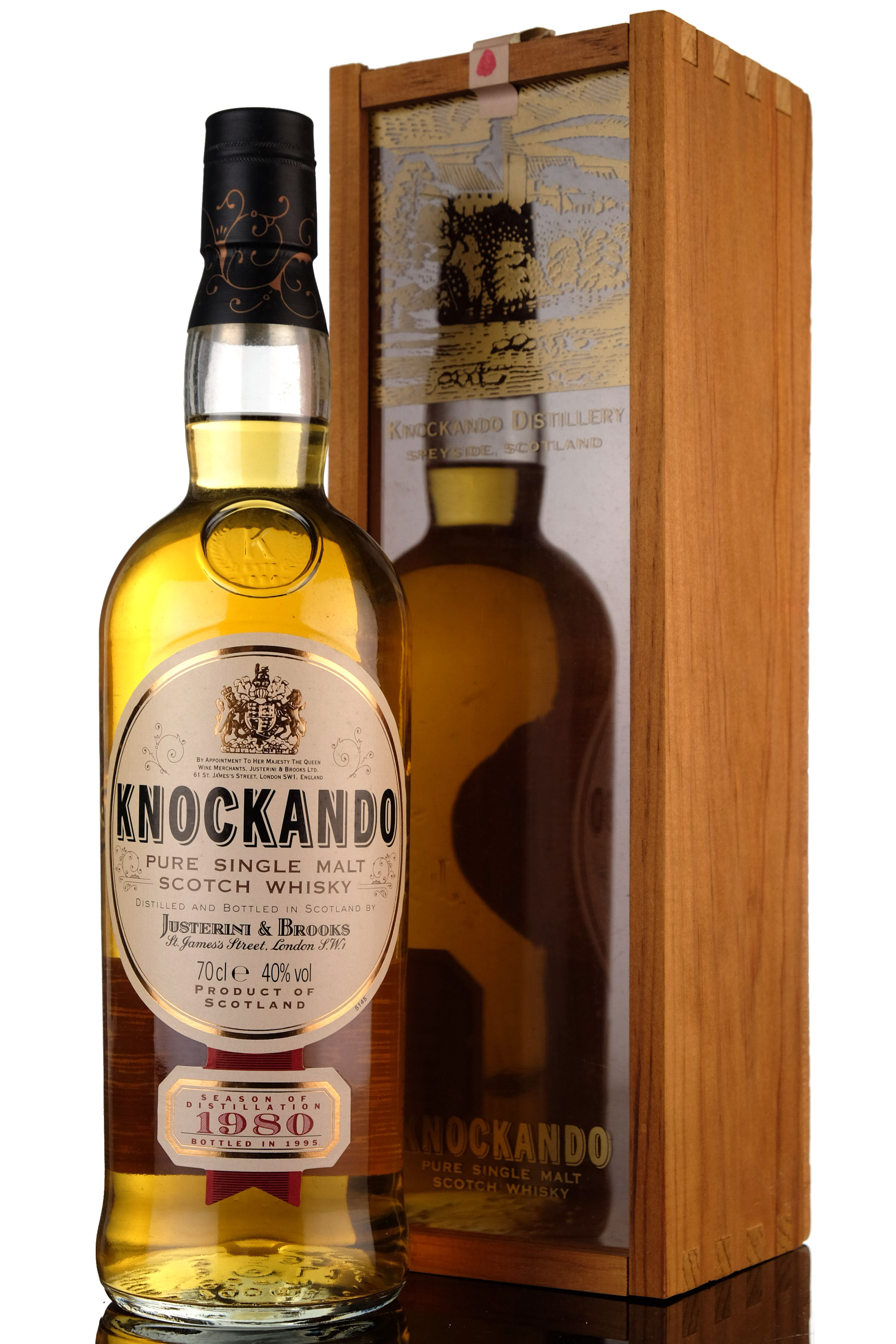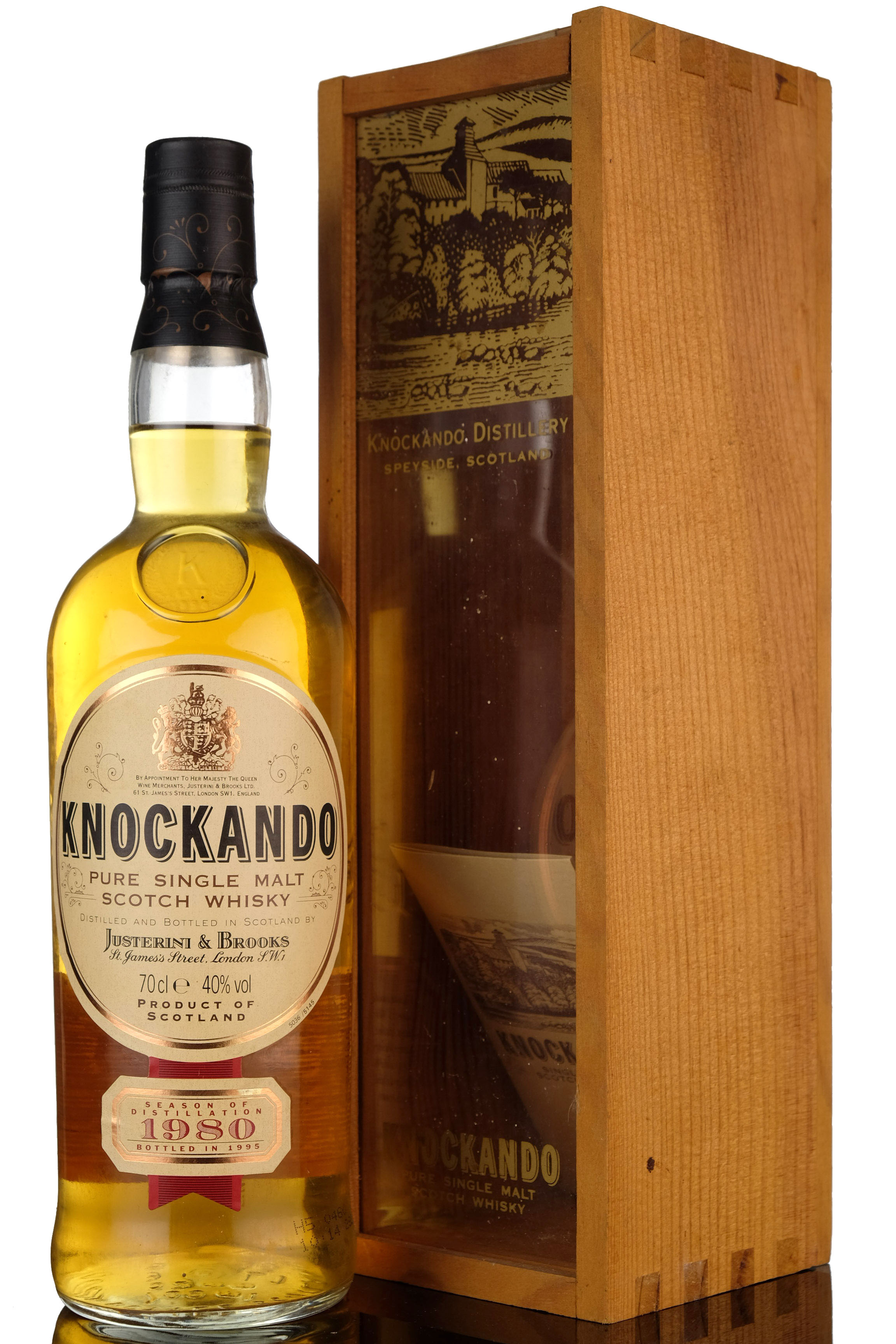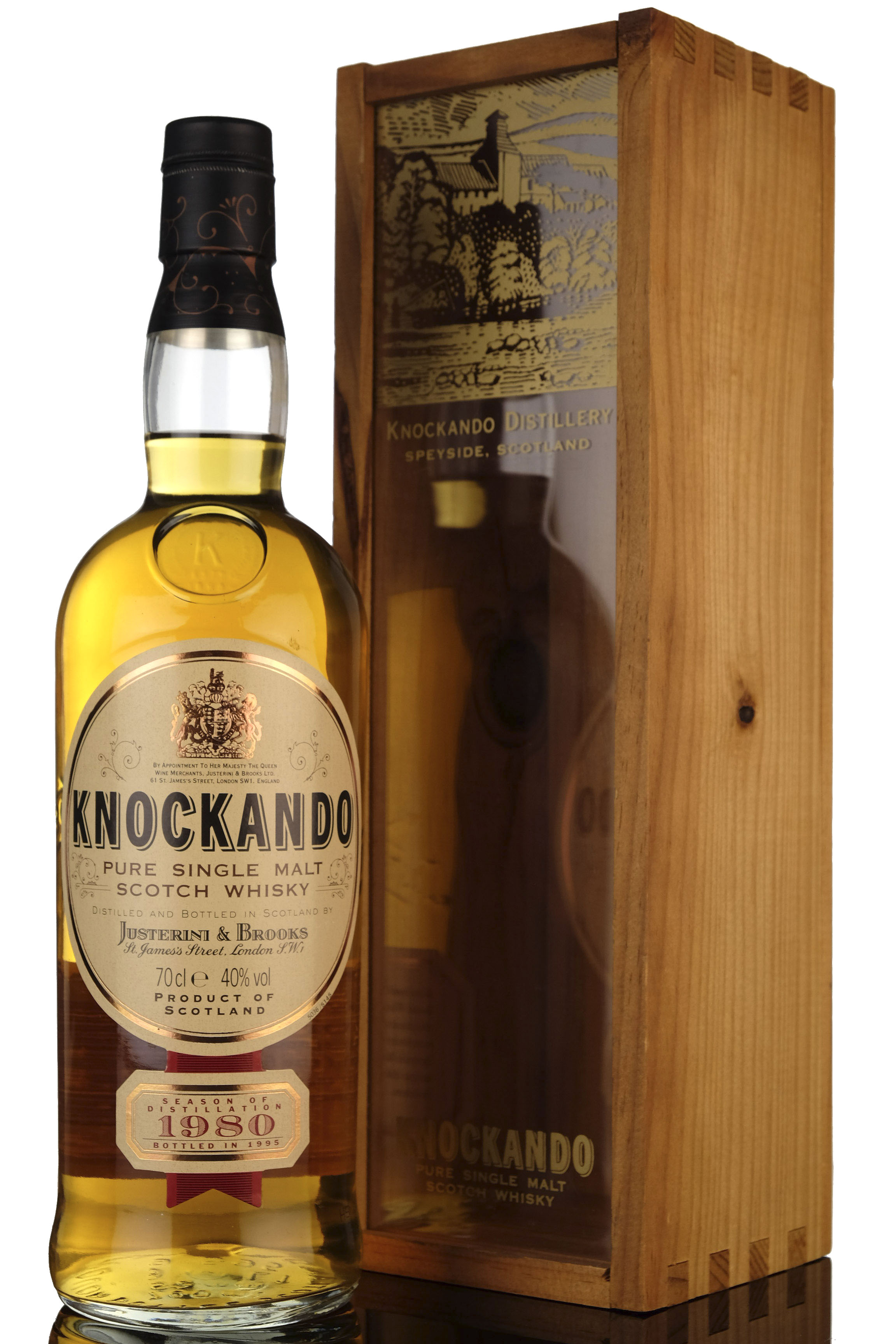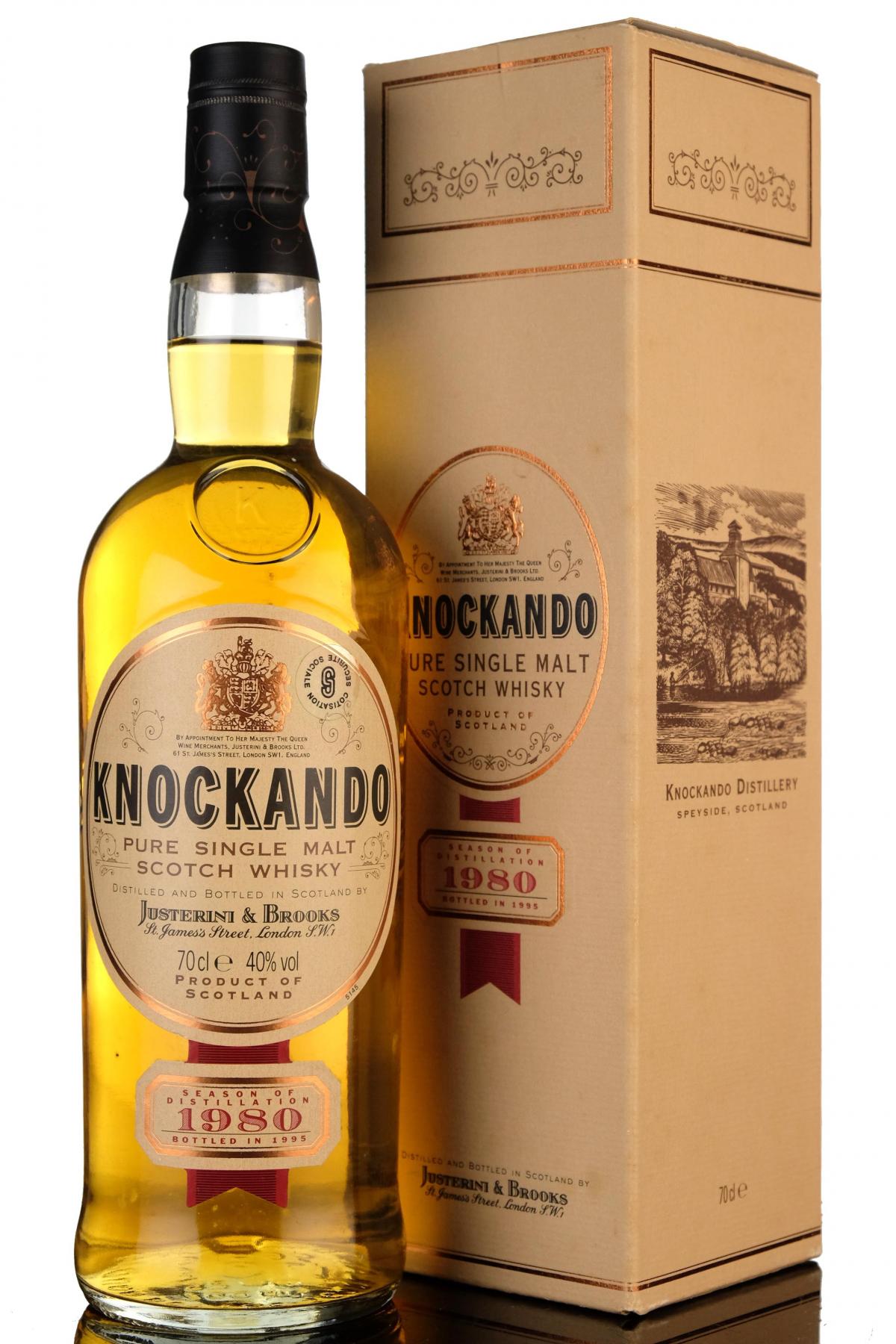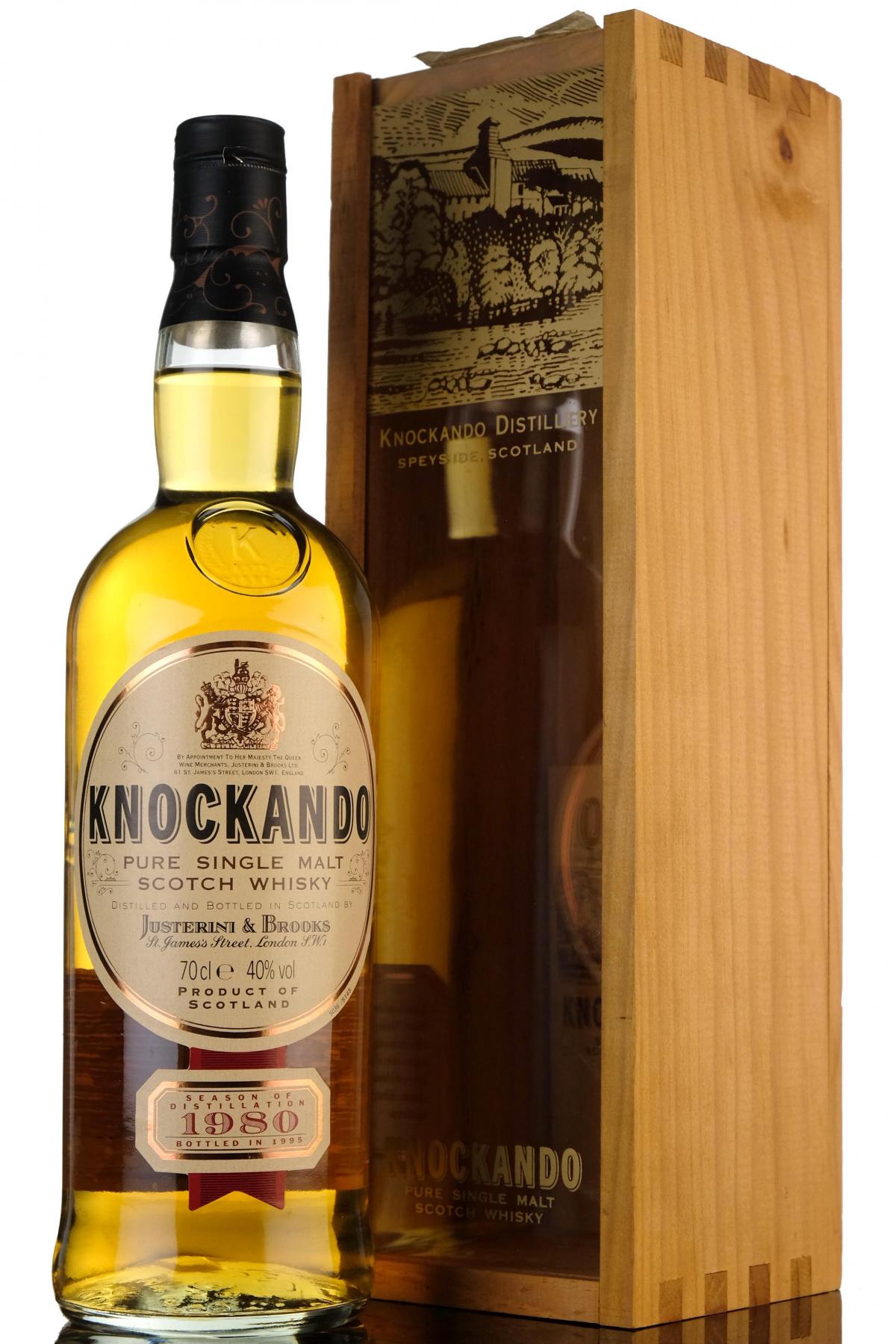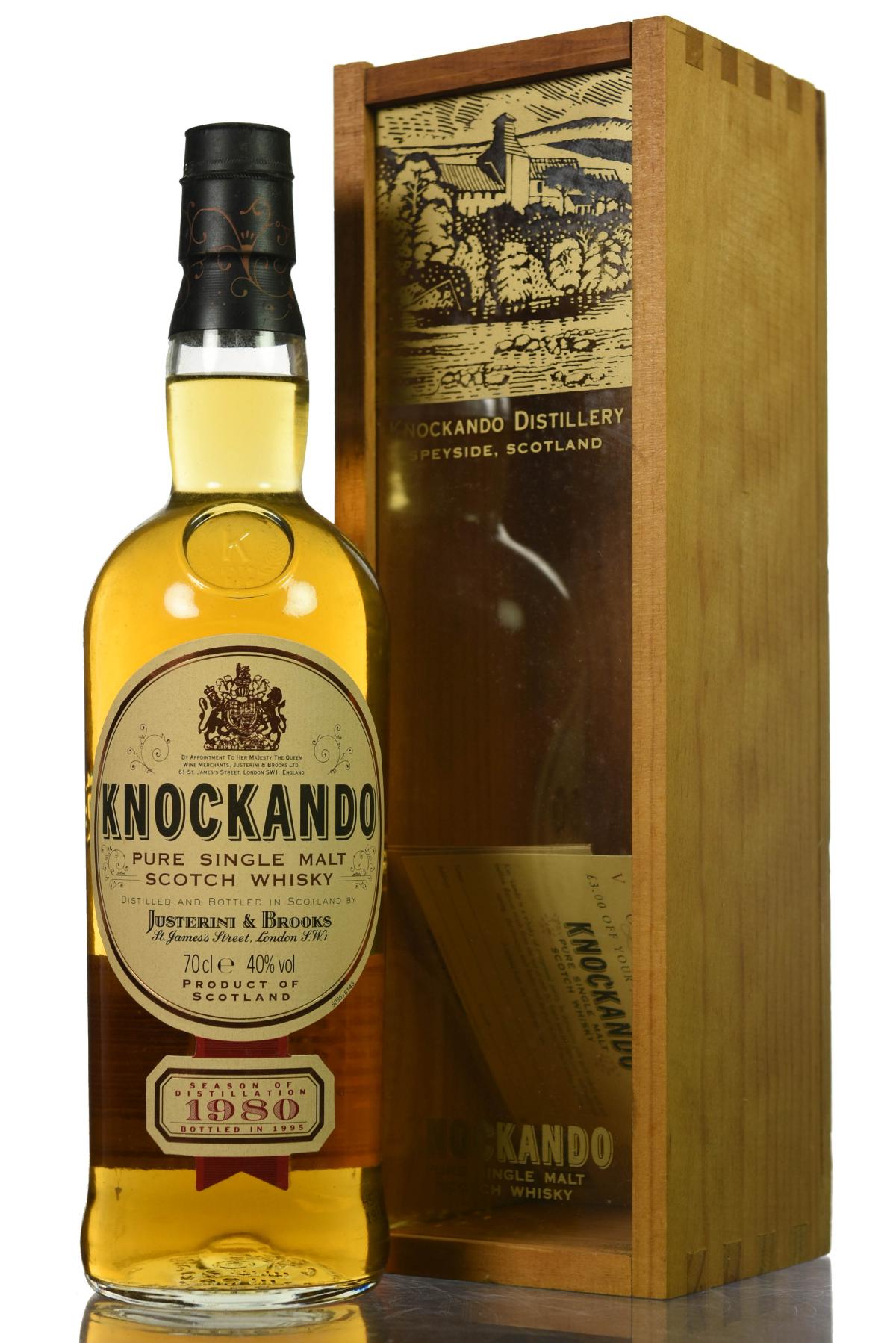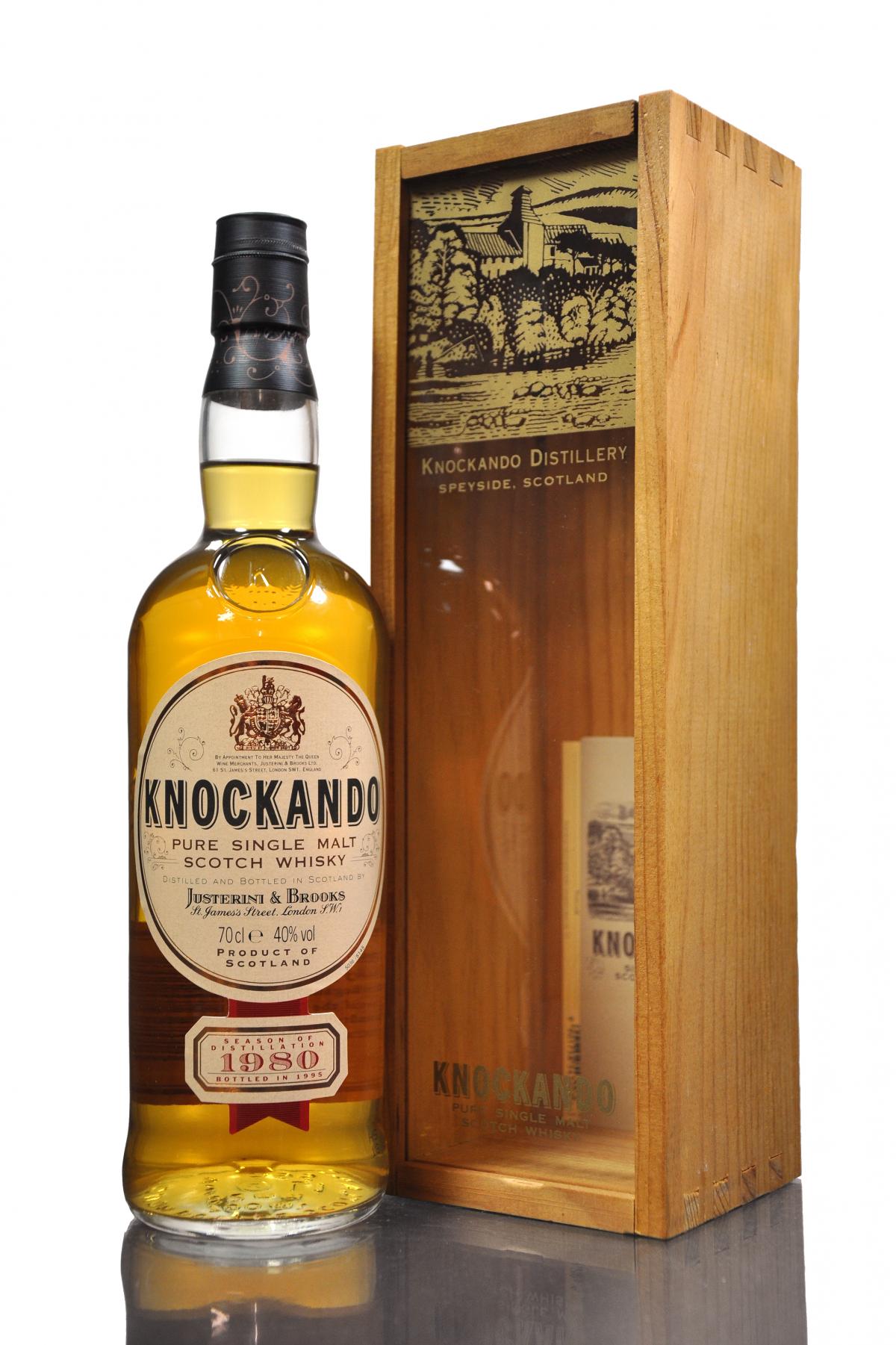Total Lots Sold:
17
View Lots
Do you have this bottle for sale?
SELL IT TODAYHAMMER PRICE OVER TIME
This graph displays data solely from Whisky-Online Auctions past sales history. Please note the filling level of the liquid and the condition of an item can affect the price negatively, so please check individual Lot sales below if there's a sudden dip in the graph.
HAVE ONE FOR SALE?
Submit your details along with an image and a description of your bottle. We'll then be in touch with the best way to proceed.
WHY SELL WITH WHISKY-ONLINE AUCTIONS?
0% Sellers Commission
Free Collections Available
Over 30 Years In The Whisky Industry
Over 1,700 Five Star Trustpilot Reviews
We Sell The Rarest Whiskies Ever Bottled
Global Buying Audience Including Far East Buyers
Bespoke Auction Platform
Thousands Of Active Bidders
Large Database Of Newsletter Subscribers
Over 36k Social Media Followers
Knockando 1980-1995
Knockando 1980 - 1995. 70cl. 40%.
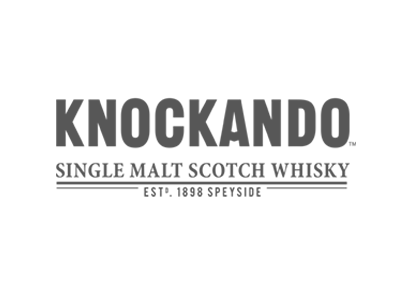
Knockando is a 19th century Speyside distillery owned by Diageo, and is bottled as a range of age-statement vintage single malts in addition to making a large amount of mediumweight, nutty Speyside single malt whisky for the J&B blend. Like J&B, Knockando is relatively obscure in the UK but is a popular brand elsewhere, with the distillery’s single malt particularly appreciated in Europe.
Knockando is known for its excellent old vintage official bottlings, with the particularly fine Master Reserve and Extra Old Reserve 1960s and 1970s vintages bottled in the 1980s and 1990s all great examples of richly-flavoured, elegant single malt whiskies that usually offer terrific value at auction. Knockando’s importance to the J&B blend means that independent bottlings are extremely rare.
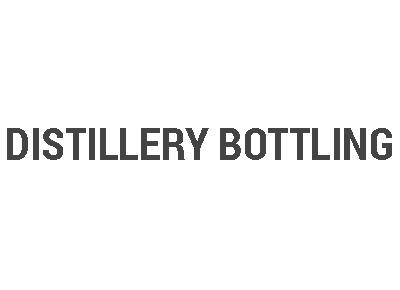
Distillery bottlings are, as the name suggests, bottled by or for the distillery from which the whisky has originated and are thus often referred to as Official Bottlings or OBs. Distillery bottlings are generally more desirable for collectors and usually fetch higher prices at auction than independent bottlings. They are officially-endorsed versions of the whisky from a particular distillery and are therefore considered the truest expression of the distillery’s character.
This ideal of the distillery character is regarded so seriously by the distilleries and brand owners that casks of whisky that are considered to vary too far from the archetype are frequently sold on to whisky brokers and independent bottlers. When this happens, it is often with the proviso that the distillery’s name is not allowed to be used when the cask is bottled for fear of diminishing or damaging the distillery’s character and status.


